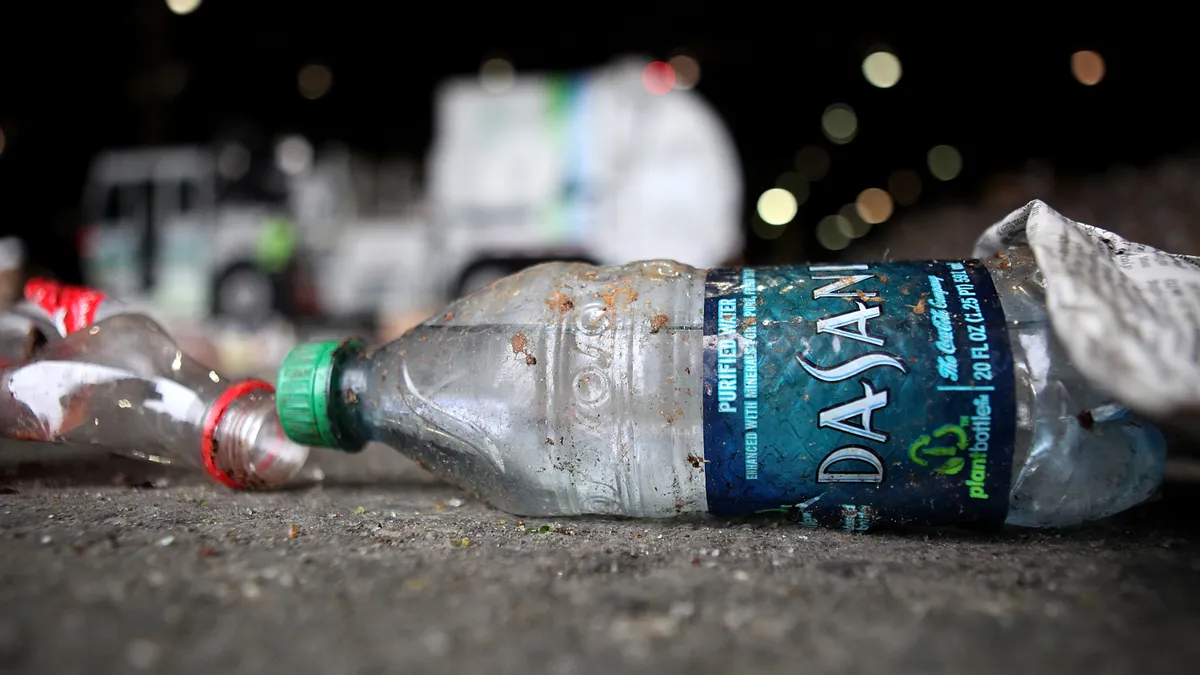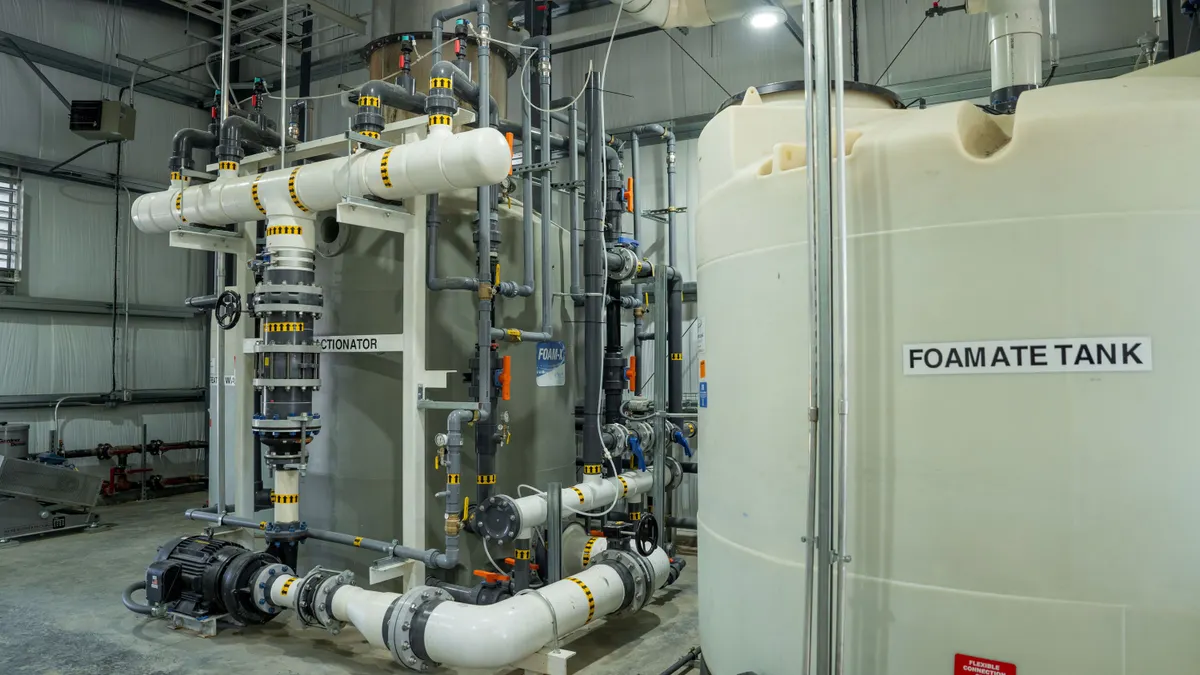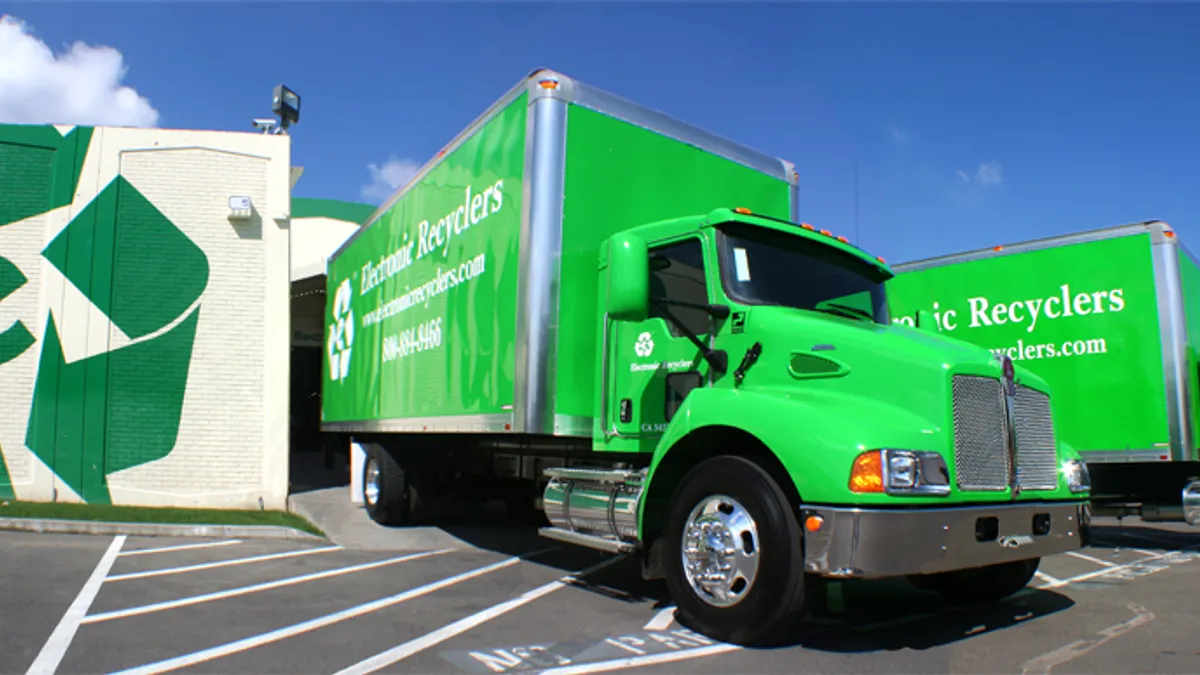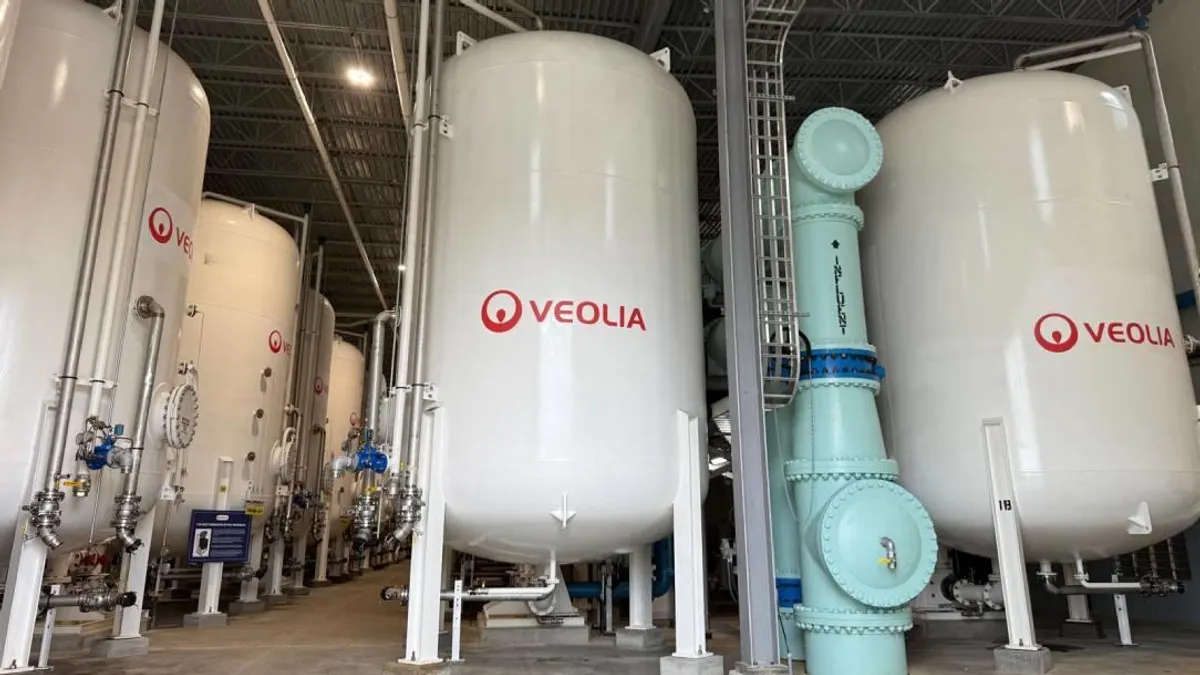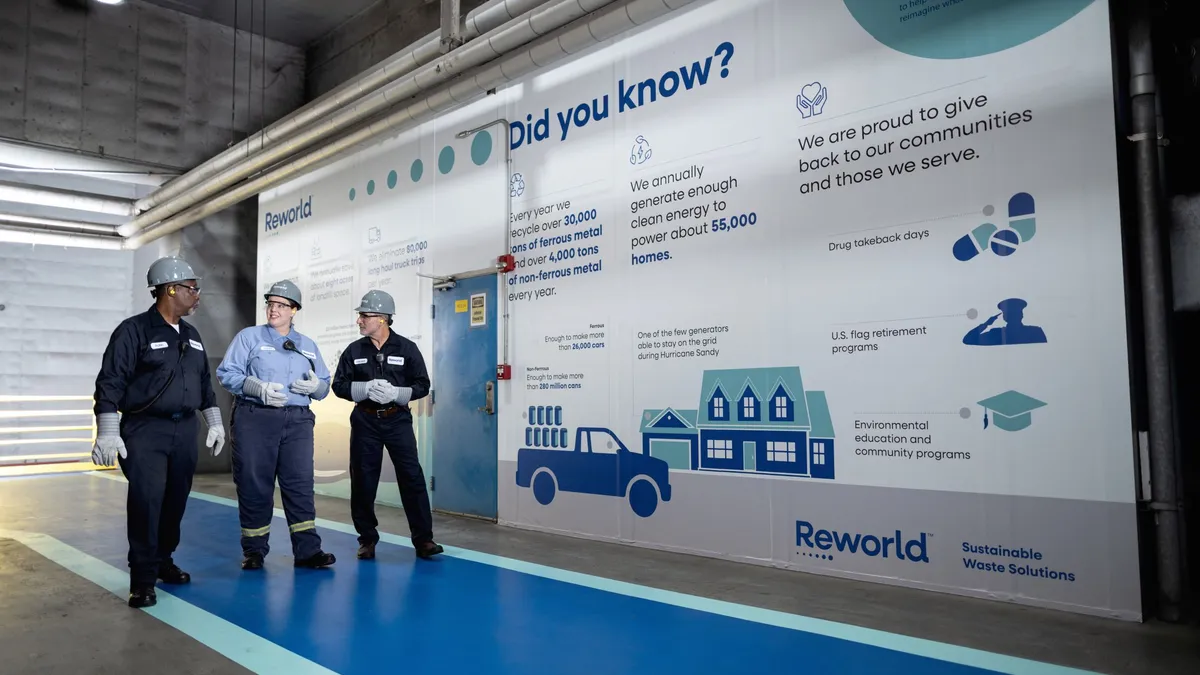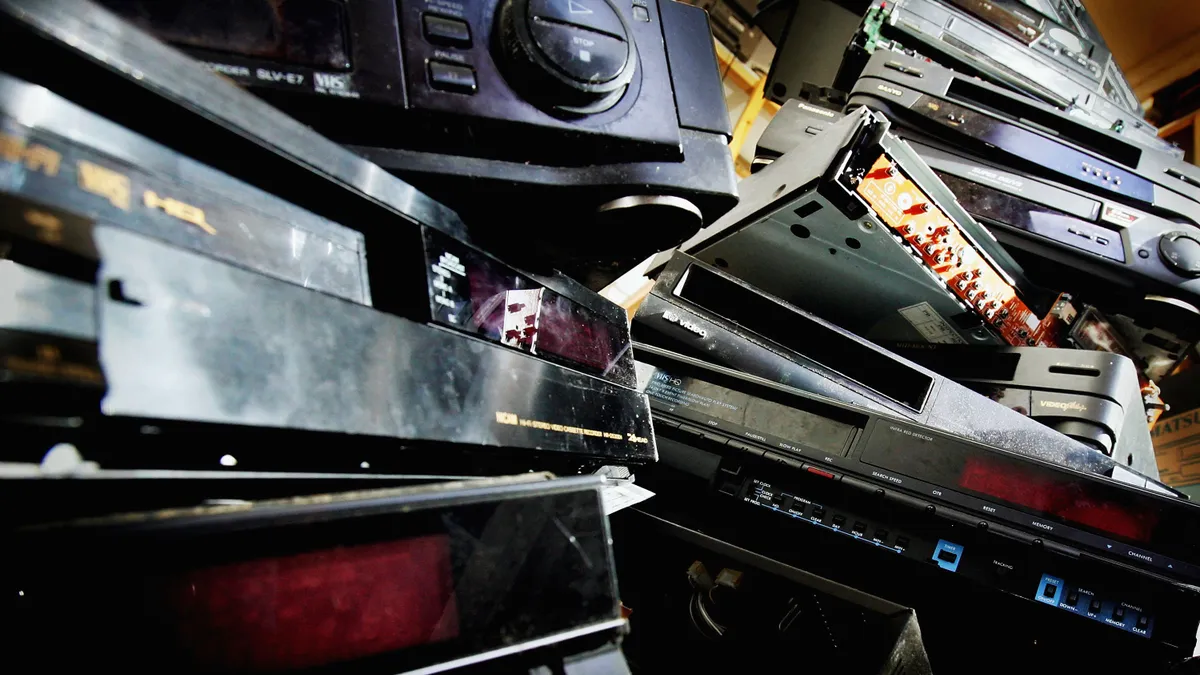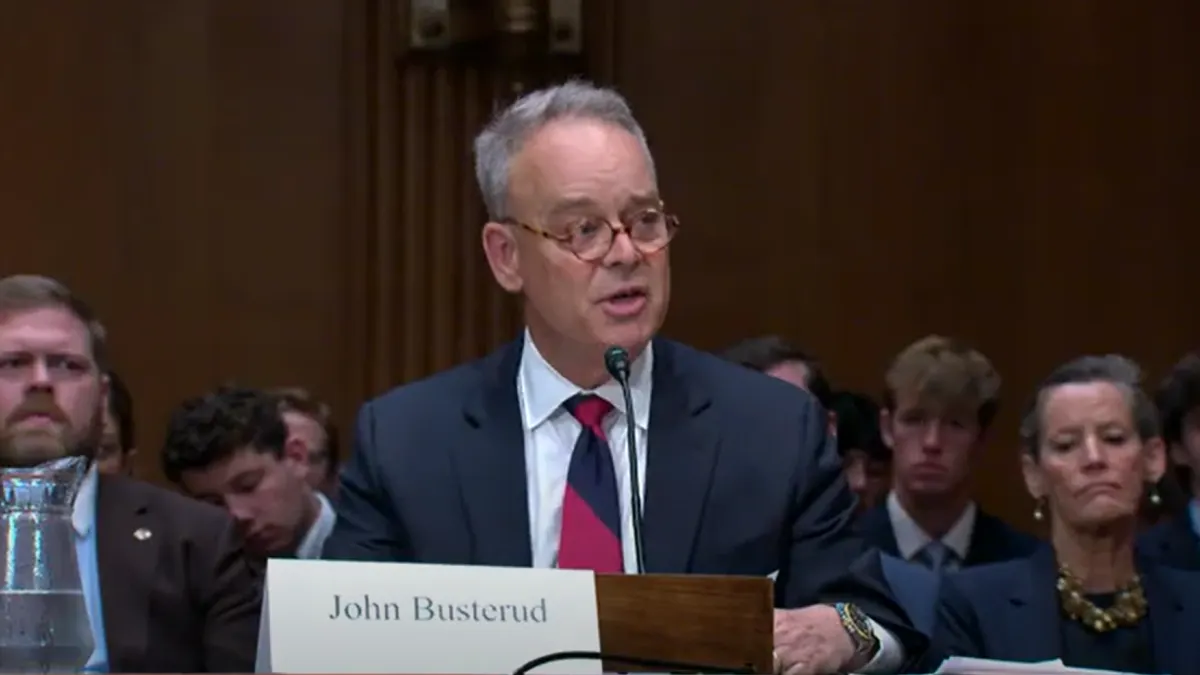Environmentalists and recycling stakeholders have long seen corporations as having a lead role in reducing plastic pollution and virgin plastic use. In 2021, they have put even more pressure on major companies to commit to bigger actions.
Organizations continue calling on businesses to sign onto aggressive pacts to use more recycled plastic in packaging, make packaging more recyclable and reduce overall waste. Meanwhile, environmental groups have attempted to wrangle corporate holdouts or press companies to make further and faster progress by using shareholder resolutions to hold them accountable for making incremental changes. Activists that allege companies are intentionally misleading consumers with their recyclability claims have also taken some of the largest brands to court.
Here’s a look at recent corporate developments toward broad climate and recycling goals in the first half of the year.
Companies balance ambition, accountability in meeting 2025 plastic reduction goals
Major brands have published sustainability reports recently to announce new goals or update the public on their progress toward reducing or eliminating virgin plastic packaging by 2025. That date is a common deadline, in part because it's the year set by the U.S. Plastics Pact, part of the Ellen MacArthur Foundation's (EMF) global Plastics Pact Network.
The U.S. pact, part of a consortium The Recycling Partnership and World Wildlife Fund are leading, has four goals: define a list of “problematic” packaging and eliminate those products; make all plastic packaging 100% reusable, recyclable or compostable; recycle or compost 50% of plastic packaging; and ensure packaging has at least 30% recycled or bio-based content.
In June, the foundation released its new Roadmap to 2025, a strategy document meant to offer more details on how its corporate, nonprofit and government participants will live up to their promises.
In the year since the pact launched, the number of participants went from 60 to about 91. The growing number shows that more companies see the need to make bigger, faster plastic reduction changes, said Emily Tipaldo, the U.S. Plastic Pact’s executive director.
“There are lots of things within the control of [these] companies,” she said during the Plastic Recycling Conference in April. “We’re not saying that changes would be easy or would be cheap, but it’s about really taking ownership and responsibility and maximizing what can be done internally.”
As corporations strategize about how to create and stick to these 2025 plastics goals, they must strike a balance among being ambitious, realistic and sincere, said Conrad MacKerron, senior vice president at nonprofit As You Sow.
“It comes down to whether a company is serious about [its goals] or whether it’s pulling numbers out of a hat to make activists go away. Or, it’s not realizing that a certain goal is more complicated than what they can do on their own.”
David Tulauskas, chief sustainability officer of BlueTriton brands, said corporations have a responsibility to set sustainability goals with a high but meaningful bar. When companies bite off more than they can chew, it can cause distrust in the brand and create missed opportunities for companies to make real changes.
“I think it's important when you set your goals that they're within your sphere of influence. I've seen and I've been a part of companies that have set goals that, really, they don't have control of all the variables, and they're at high risk of not meeting [them],” he said during a panel discussion at the Circularity 21 conference in June.
By the end of 2021, BlueTriton plans to use 25% recycled PET in all of its packaging and 100% recycled PET for Poland Spring bottles, its largest water brand. By 2025, BlueTriton aims to use 50% recycled plastic in all of its packaging.
MacKerron said companies also must be transparent about their goal progress, even if they are falling behind. EMF has become one of the most influential organizations to spearhead 2025 sustainability goals, he said, in part because of its global name recognition and stringent requirements that participants make annual disclosures on their progress.
“Those are the big goals that everyone is watching. It’s an organization everyone is watching. Those factors suggest that [participating] companies will make more aggressive, good-faith efforts to meet 2025 goals,” he said.
Another looming hurdle for companies with 2025 goals is the concern that recycled plastic supply won’t be able to meet increased demand, making it hard to fulfill recycled content promises, said Charlie Schwarze, director of sustainability for Keurig Dr Pepper, during a panel discussion at WasteExpo in June.
“If you look at PET, and the goals that are being made around recycled content for 2025, we are going to be around a billion pounds short if it's a business-as-usual scenario going forward,” he said, adding that improved infrastructure, such as sorting and reprocessing technology, could help bridge the gap, especially for food-grade resins.
A recent report from AMERIPEN, which studied corporate commitments of 35 consumer goods companies, said demand for recycled plastic resins except HDPE will outpace supply. A combination of better collection systems, improved recycling capacity, consumer education about what can and cannot be recycled, and other systemic changes in U.S. recycling systems will be needed to catch up. Recent PCR laws in some states are also expected to drive demand further beyond expected supply this supply issue.
Here are some of the more notable announcements of 2021 so far:
-
According to its most recent sustainability report, Keurig Dr Pepper used 2% postconsumer resin in its plastic packaging in 2020 and plans to make that 25% by 2025. The company recently converted three of its product bottles to 100% recycled PET.
-
Blue Apron announced in July it will use only 100% recyclable, reusable or compostable material for its meal kit boxes by the end of 2025, and it will use 75% postconsumer recycled content by weight in its boxes.
-
Walmart says 62% of its global private brand packaging is now reusable, recyclable or industrially compostable. The company aims to reach 100% by 2025, according to its recent environmental, social and governance (ESG) report. By that same year, it aims to have 17% of its private-brand plastic packaging made of postconsumer recycled content. It currently is at 9%.
-
Outdoor furnishing company Keter says it’s “ahead of schedule” in reaching its 2025 sustainability goals of making 100% of products recyclable and using 50% recycled content in production. It has made 99.9% of its consumer products recyclable, according to a recently released ESG report, and its product line uses 40% recycled content.
-
Mandarin Oriental hotel group has reduced its annual plastic footprint by about 70% and estimates that its hotels will eliminate single-use plastics by the end of the first quarter of 2022.
-
Wastequip aims to reduce the amount of virgin resin its Toter brand cart manufacturing operation uses by 25%. Citing a 2020 study by Resource Recycling Systems, the company says the change will reduce Toter’s carbon footprint by 9% per cart.
Shareholder resolutions make further ESG impacts
Companies involved in the U.S. Plastics Pact or other public sustainability goals are participating voluntarily, but organizations such as As You Sow say more needs to be done to hold accountable companies that won’t step up on their own or haven’t committed to big enough changes. Shareholder resolutions are one strategy, MacKerron said.
The resolutions are not legally binding in the U.S., but they can act as important leverage to force companies to publicly respond to calls for reducing virgin plastic use or other plastics-related initiatives, he said. AYS has typically focused its shareholder resolutions at the brand level, but last year, it turned its focus on Waste Management and Republic Services, which later released more detailed information on recycling infrastructure, plastic markets and policy positions. At the time, MacKerron described this as an important step to better understand processing infrastructure and inform future proposals at the brand level.
In January, As You Sow returned its focus to brands by filing shareholder proposals with 10 companies — Amazon, Keurig Dr Pepper, Kraft Heinz, Kroger, McDonalds, Mondelez International, PepsiCo, Restaurant Brands International, Target and Walmart — and calling for “absolute cuts” in plastic packaging use.
AYS has already seen positive results from some of the proposals, MacKerron said. Target and Keurig Dr Pepper agreed to cut virgin plastic use 20% by 2025, while Mondelez agreed to a 5% overall reduction (including a 25% cut in virgin plastic in its rigid plastic packaging), AYS said in a release announcing the resolutions. PepsiCo and Walmart also agreed to cuts, which are still being finalized, it said. In June, 35% of Amazon shareholders voted in favor of the same proposal.
Kraft Heinz told Crain's that the company and shareholders agreed to table a similar resolution after agreeing to disclose sustainability goals and progress. About 80% of its packaging is reusable, recyclable or compostable, it said, and the company aims to make that 100% by 2025.
AYS called out Kroger in June after 45% of its shareholders voted in favor of the resolution. AYS says the company lacks transparency in disclosing the amount of plastic it uses. In Kroger's proxy statement, shareholders asked the board to issue a report on the company’s plastic use and give details on company strategies or goals to reduce the use of plastic packaging.
Kroger has not yet responded to a request for comment, but the board of directors recommended voting against the proposal, saying in an SEC filing that the company has already set sustainable packaging goals for 2030 aimed at reducing packaging pollution, “improving end-of-life management for packaging, and driving demand for recycling through our material choices and customer engagement.”
Some experts think these types of shareholder proposals, as well as waste company reports on their own handling of plastic, could continue to ramp up. Waste companies have increasingly called out plastic recycling as a goal in their ESG reports as well.
Meanwhile, a recent report from the Harvard Law School Forum on Corporate Governance says shareholder proposals related to ESG practices are on the rise. At the end of the 2020 proxy season, 90% of S&P 500 companies had published some kind of ESG report, up from 86% the prior year and 20% 10 years ago.
The Securities and Exchange Commission’s new leadership under President Biden may be more supportive of shareholder resolutions on ESG issues than it was under the Trump administration, the Wall Street Journal reported, adding that the SEC under Trump gave guidance that encouraged companies to block certain ESG-related shareholder resolutions.
Tracking recyclability lawsuits
Environmentalists and consumers have filed several lawsuits so far in 2021 that aim to prove that major corporations have made false claims about the recyclability of their products.
Under the Federal Trade Commission's (FTC) Green Guides, manufacturers are required to ensure their labeling claims are truthful. One key part of the Green Guides is a rule that only allows companies to make unqualified claims about a product's recyclability when 60% or more customers have access to recycling facilities accepting the material in places where the product is sold. One recent example is the Smith v. Keurig Green Mountain lawsuit first filed in 2018, in which a California consumer claims the labels on Keurig’s single-use coffee pods, known as K-cups, misleads consumers into believing they can be recycled. The company has said its pods are indeed recyclable.
An uptick in these types of recyclability lawsuits in the last few months hints that environmentalists see legal recourse as a strategy for targeting greenwashing. Jan Dell of the Last Beach Cleanup, an environmental group that recently sued TerraCycle and eight brands for alleged false recyclability claims, said she could not comment directly on ongoing lawsuits, but she believes companies need to be transparent and accountable when they tout their products as recyclable.
"In the U.S., it is the wild, Wild West of product labels and claims right now. There are weak laws and no sheriff in town," she said, "so product companies are claiming and labeling products as recyclable, compostable or reusable with little fear of government enforcement."
Mark Henriques, partner at the firm Womble Bond Dickinson, wrote in a recent National Review article that some recyclability lawsuits may unfairly target companies that are making efforts to improve their ESG practices. At the same time, he cautioned that companies advertising products with recyclability language or logos should “carefully document” their claims and closely read the requirements outlined in the Green Guides to make sure they align with the current standards.
Here are a few of the recyclability lawsuits we’re following:
Sierra Club vs. The Coca-Cola Co. et al.
The lawsuit: California consumers and the Sierra Club sued the Coca-Cola and BlueTriton Brands on June 16, saying the companies falsely claim some of their plastic beverage bottles are 100% recyclable. The Sierra Club filed two lawsuits, one on its own behalf and a class action complaint on behalf of consumers.
According to the lawsuit, the bottle’s label and cap are made from a type of polypropylene the Sierra Club states is not recyclable. The lawsuit also claims that while the bottles themselves are made of PET, which is recyclable, “28% of PET plastic that is deposited for recycling is unrecyclable due to contamination and processing loss.” The rest may end up in landfills or waterways, the Sierra Club said.
Neither Coca-Cola nor BlueTriton Brands has responded publicly to the lawsuits, and a spokesperson for Coca-Cola said the company does not comment on pending litigation. BlueTriton has not yet responded to Waste Dive's request for comment.
The latest: A case management conference is set for Sept. 14 in the U.S. District Court for the Northern District of California.
Last Beach Cleanup vs. TerraCycle Inc.
The lawsuit: The Last Beach Cleanup, a nonprofit environmental organization, filed a civil complaint against TerraCycle and eight brands in March, claiming the brands used deceptive labeling for mail-in collection programs.
The brands named in the lawsuit use TerraCycle’s mail-in recycling program for products and packaging that is considered hard to recycle or is not accepted in most municipal recycling programs. CSC Brands, Gerber, Late July Snacks, L’Oreal USA, Materne North America, Coca-Cola, Clorox, Procter & Gamble, and Tom’s of Maine are all named in the complaint.
The Last Beach Cleanup says TerraCycle advertises free recycling programs, but it doesn’t clearly disclose that the free service is limited and that consumers may have to pay to send in certain items. The lawsuit states that those caveats could prompt consumers to throw away the items, or, “worse yet, some consumers instead discard the packaging into their curbside recycling bins, thereby contaminating legitimate recycling streams with unrecyclable materials and increasing costs for municipalities.” The suit also claims that it’s not clear how many tons of material TerraCycle recycles from the amount it collects.
TerraCycle CEO Tom Szaky told Resource Recycling and Vox that the company disputes the claims. The TerraCycle labels do not guarantee free recycling availability, he said, and the company provides recycling documentation to all its customers.
The latest: A case management conference is scheduled for Dec. 16 in the California Superior Court of Alameda County.
Greenpeace vs. Walmart
The lawsuit: Greenpeace’s lawsuit against Walmart, filed in December 2020 in California Superior Court, alleges the company has falsely claimed its private-label products made from plastics Nos. 3-7 are recyclable. Walmart uses How2Recycle labels that indicate that packaging is either recyclable depending on local regulations or recyclable if consumers follow certain instructions.
Greenpeace argues the labeling is deceptive because most Californians — as well as most U.S. residents — do not have access to facilities that can recycle these types of plastics, meaning the packaging will likely end up in a landfill, not a recycling bin.
Walmart filed a motion to dismiss the case in March, arguing that “none of the allegedly deceived consumers are parties here, and the products are not erroneously labeled.” Walmart maintains its recycling labels are clear, and “the reasons more plastic products are not recycled involve market conditions and third-party actions for which Walmart is not responsible.”
The latest: The companies are awaiting a judge’s decision on whether to approve Walmart’s motion to dismiss the case. If denied, the companies could be back in U.S. District Court for the Northern District of California as early as September.



